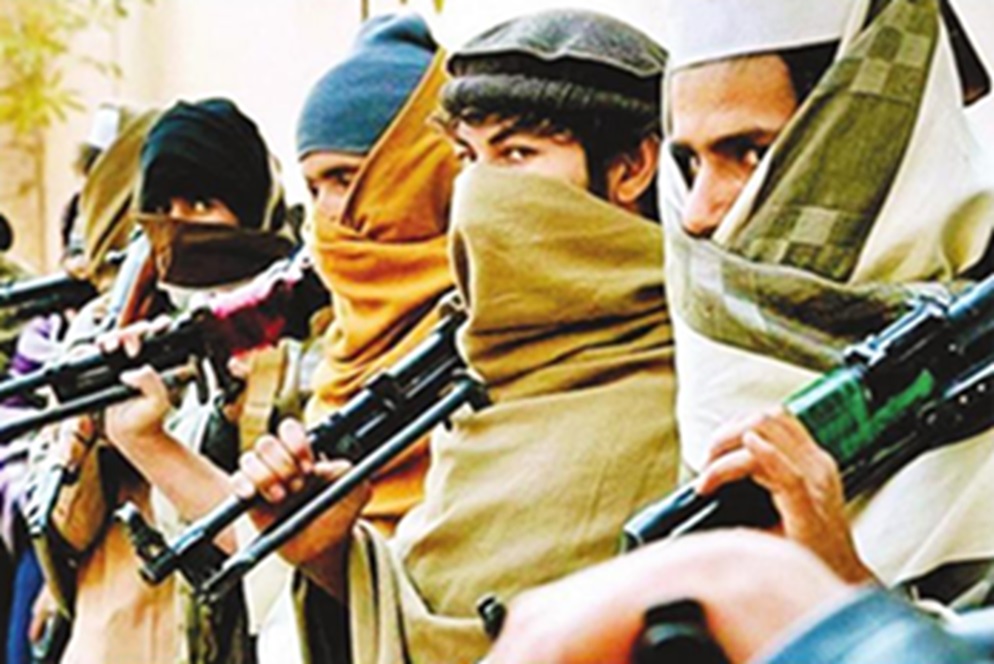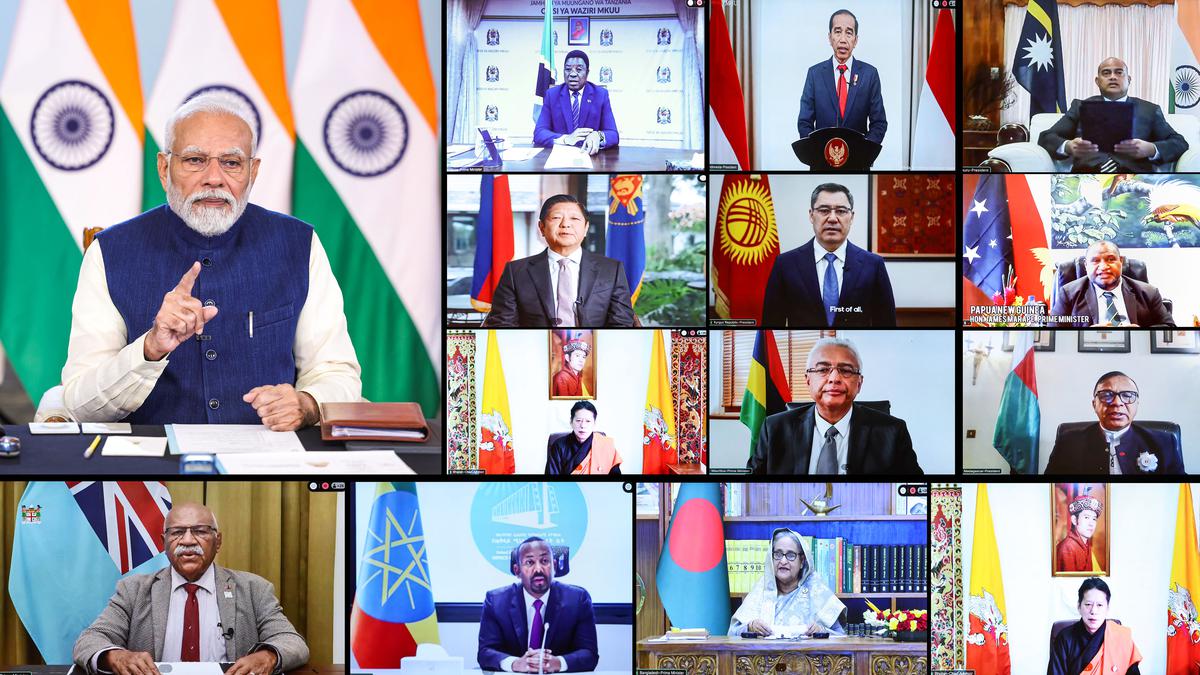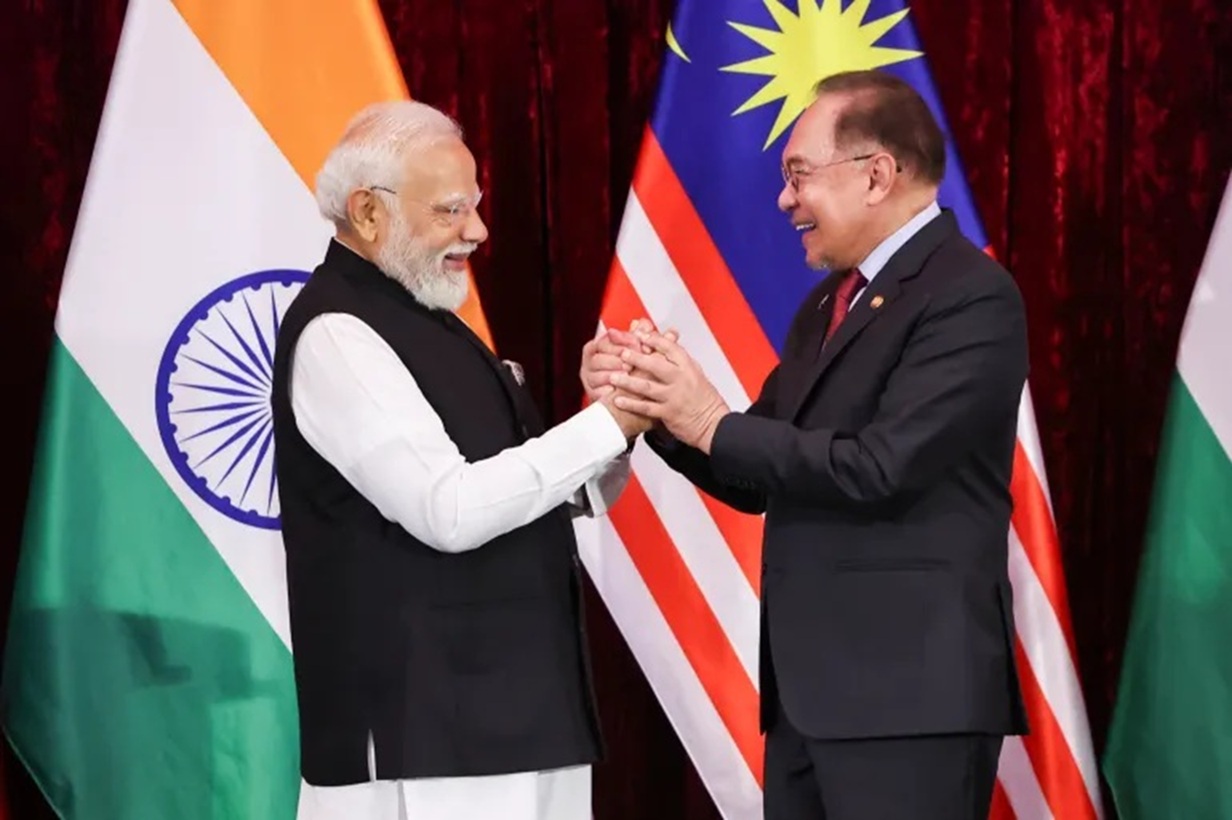Pakistan is said to be in a Polycrisis. Historian Adam Tooze first coined the term Polycrisis in 1960, to define a situation where multiple crises come together to create a more complex situation. The economic, political, and social issues in Pakistan are intricately woven together, which is creating a complex web of instability. Addressing these issues needs a comprehensive, and coordinated effort to deal with the multi-faceted challenges. (whiting, 2023)
According to the Dictionary of Human Geography, a Fragile state can be defined as a country with weakened political, economic, and social structures. Chronic poverty, natural disasters, corruption among officials of high ranking, and frequent civil unrest, and uprisings usually mark such states. These factors lead to difficulty in the proper functioning of the country. (Alisdair Rogers, 2013) It is essential to understand Pakistan’s fragility because the strategic location of Pakistan places it at the heart of geo-political conflicts. Pakistan is known to not just the victim, but also the perpetrator of several Jihadist movements. These fragilities affect not only Pakistan and its neighbours, but also global- counter-terrorism measures, peacekeeping missions, and migration patterns.
Historical Context of Instability in Pakistan
The year 1947 witnessed one of the most gruesome mass migrations in the history of mankind. This mass exodus was a direct consequence of the partition of British India into the independent states of India and Pakistan. Muslims migrated to Pakistan, while Indians and Sikhs migrated to India, giving rise to communal violence of unprecedented scale (National Army Museum). This period of death and destruction created a history of animosity, and Pakistan has ever since struggled with the creation of a stable government. The humanitarian crisis, refugee influx, and problems arising because of diverse ethnic groups have made it difficult for Pakistan to prosper peacefully.
Pakistan in its early years faced acute political instability and difficulty in maintaining a stable government. There were frequent changes in the leadership, and the assassination of the Pakistani Prime Minister Liaquat Ali Khan in 1951, further exacerbated the tensions. The military considered the civilian government to be ineffective and started interfering in the administration. This led to the organization of the first military coup under General Ayub Khan in 1958. This set the precedence of military domination and subsequent coups. This further weakened democracy.
The presence of multiple ethnicities in Pakistan further complicates the situation. Much like India, the partition of British India in 1947 led to Pakistan being caught in a whirlpool of sectarian violence and ethnic tensions. Ethnic clashes in Balochistan and violent clashes between the Shia and Sunni Muslims have remained a persistent problem. Shia communities have been the victims of attacks by groups like Tehrik-i-Taliban Pakistan (TTP), and Lashkar-e-Jhangvi. (BBC News, 2002) This resulted in widespread chaos and violence. The influx of Afghan refugees after the Soviet invasion of Afghanistan in 1979, and Pakistan’s support towards Afghan Mujahideen have further fostered a culture of jihad and militancy.
Pakistan’s economy has been plagued by corruption, irregular growth, debt, and heavy reliance on foreign aid. Corruption and weak political structures deplete people’s trust in the bureaucracy and institutions. Inadequate political patronage has only exacerbated the issues. Economic disparities, inflation, and poverty fuelled discontent among the citizens. Lack of development, including poor education, healthcare, infrastructure, and lack of economic opportunities have contributed to a vicious cycle of underdevelopment, and poverty. All these political, economic, governance and social issues are interlinked, creating a complex web of challenges perpetuating Pakistan’s fragile state.
Political, Economic and Social Issues in Pakistan
Pakistan’s political, economic, and social crisis have worsened since 2023. According to Human Rights Watch, World Report 2024 Pakistan is facing one of the worst economic crises in the world, with an increase in poverty, unemployment, and inflation. Millions of people have been facing food shortages, inadequate health standards, and a rise in unemployment. (Human Rights Watch, 2023)
Poor governance, weak institutions, lack of accountability, and corruption have hampered governance in Pakistan. Lack of robust legal frameworks has led to inefficient state authority, and poor public service (Key Elements for a Stable Pakistan, 2017). The 2024 elections in Pakistan were held after two years of political turmoil. The election further showcased the dominance of the military in the Pakistani administration. The selection of the current Prime Minister Shehbaz Sharif is more beneficial for the Pakistani military because of his pro-establishment stance. Nawaz Sharif’s fallout with the military in the past has led to this decision. (SAREEN, 2024) The increased role of the military has led to eroding the legitimacy of the government and has undermined the authority of democratic institutions. This leads to civil-military unrest, political uncertainties, and policy indecisions. The Suppression of civil society leads to an increase in discontentment and fosters a culture of violence. (Sameer Patil, 2024)
Economic mismanagement under military dominance leads to corruption, poverty, and unemployment, and exacerbates social unrest. According to the Observer Research Foundation, the primary problem in Pakistan is the extreme decline in its Forex reserves. It has also stated the devaluation of the Pakistani Rupee (PKR) has further complicated the situation in Pakistan. The total internal debt of Pakistan was 33% of its GDP in 2022. (Bhowmick, 2023)
The Pakistani economy increasingly depends on foreign aid and loans from financial institutions like the World Bank and IMF. Pakistan’s inflation rate in May 2023 was 38%, which has slowed down to 11.8% in 2023 (Hussain, 2024). The decline in inflation is attributed to a slowdown in food inflation and the current government’s efforts. However, the prolonged struggle has created a rise of extremism and feelings of discontent.
The Human Rights Watch, Watch Report of 2024 has pointed out that problems like violence against women, and girls- including murder, rape, forced and child marriage, domestic violence, acid attacks, and sexual harassment are increasingly prevalent in the country. Blasphemy-related violence against religious minorities, discriminatory practices, and government persecution have intensified in the country. (Human Rights Watch, 2023)
The interplay between the political, economic, and social issues creates a complex web of interdependence that fuels the instability in Pakistan. Political instability creates an unstable environment for investments and development. Corruption leads to the ineffectiveness of economic reforms, which further exacerbates social inequalities in the country. Inflation strains the standard of living, which creates a feeling of discontentment against the government. These problems create a vicious cycle of instability. Ethnic, and sectarian tensions weaken national cohesion and lead to internal instability.
Terrorist organizations like the Taliban exploit these internal instabilities to create an environment of chaos. Poverty-stricken individuals get exploited, and recruited by them. In 2023, Pakistan saw 789 terrorist attacks which further proves the link between internal instability and an increase in terrorist activities. (PTI, 2024)
Influence of Pakistan’s Instability on Terrorism
Afghanistan’s takeover by the Taliban has resulted in a 52% rise in terrorism. In several regions, the police forces have been the primary target of the TTP (Pande, 2023). The TTP commander, Mufti Sarbakaf Mohmad blamed the Pakistani military, and the military installations for the violent protests. He has encouraged the TTP militants to exploit the state-society division to bolster their violent campaign. (ABDUL SAYED, 2023)
During the protests, the police had thwarted a suicide attack on a Chinese-owned boatyard. Had this attack been successful, it would have had significant security implications for the China-Pakistan Economic Corridor (Shahid, 2024). The arrest of several ISIS operatives in Europe and Southeast Asia highlights the global reach of these groups. The threats posed by Pakistani militants to the world can be corroborated by incidents like the 2005 London bombing carried out by British nationals of Pakistani descent who had received their training from Pakistan, the 2008 Mumbai attacks orchestrated by Lashkar-e-Taiba (Let), and the 2019 Pulwama attack carried out by Jaish-e-Mohammed, to name a few. The global reach of terrorism is facilitated by extensive diaspora networks, transnational connections, porous state borders, and the inability of the state to fully dismantle these institutions. Terrorist organizations utilize the lawless Pakistani regions to recruit militants, regroup, and plan international attacks. Terrorism is a by-product of internal instability. They thrive under such conditions and manipulate the prevailing sentiments of distrust to further their motives and recruit and acquire funding. The internal instability in Pakistan has stemmed from pitting former Pakistani Prime Minister Imran Khan against the army chief general Asim Munir. Against the backdrop of this internal instability of unprecedented scale terrorist organizations, particularly Tehreek-e-Taliban Pakistan (TTP) and Baloch separatists. These terrorist organizations are exploiting the tensions between civil society and the government to expand their networks into the cities. The Pakistani government’s inability to control inflation, and failure to negotiate a deal with the International Monetary Fund to stop the devaluation of the rupee, coupled with its arrogant approach towards the political opponents have eroded public trust. In this situation when the right to peaceful protests, and the right of the franchise have been blocked, the youth of the country are angry and could express their anger in the form of violence.
The decision of the Pakistani Democratic Movement (PDM) government to go against the Supreme Court’s orders and not hold elections within 90 days in Punjab and Khyber Pakhtunkhwa assemblies after its dissolution in January 2023 further created a situation of violence (Jamal, 2023). When the elections were finally held this year, violent clashes broke out. A situation like this is conducive for terrorist organizations to recruit new members, who may see violence as the only assured way of achieving their demands.
Diplomatic Efforts to Mitigate Terrorism
As stated by Akhilesh Pillalamarri in an article published in The Diplomat, a fragile country like Pakistan which suffers from chronic instability may find it difficult to implement the necessary reforms, prioritize growth, or serve as a stable partner for its neighbours. As such efforts have been made by several countries, and international forums, to help stabilize Pakistan. (Pillalamarri, 2023)
The United States has always been a crucial player in helping stabilize Pakistan. Driven by its pursuit of counterterrorism, and regional security concerns, especially after the 9/11 attacks, the United States have provided significant economic, and economic aid to bolster Pakistan’s capacity to fight terrorist groups like al-Qaeda and the Taliban. In a report published by the Council of Foreign Relations, the United States aims to defeat and degrade the terrorist groups that threaten America’s interest and risk the Nuclear Program of Pakistan, and for that, a stable Pakistan is a necessity. Recently the Biden administration has emphasized the importance of Pakistan in the Afghan peace process, and in countering threats, including ISIS-Khorasan.
While Pakistan and China maintain a cordial relationship, both sides have recognised the limitations of what they can do for each other. China’s primary involvement in Pakistan has been through the China-Pakistan Economic Corridor. However, many CPEC projects have stalled due to economic instability in Pakistan. China’s way of stabilizing Pakistan is through investing billions in energy, and infrastructure, to reduce economic distress that fuels extremism. (Pillalamarri, 2023)
Despite political and military tensions between India and Pakistan, India has engaged in Track II diplomacy to explore avenues for collaboration, and cooperation. India has replicated its stance against terrorism once again at the Shanghai Cooperation Organisation summit and has urged the international community to “isolate” countries that provide a haven for terrorists.
The SAARC countries have signed the Regional Convention on Suppression of Terrorism, to collectively combat terrorism. The World Bank addresses Pakistan’s instability by addressing the underlying economic inefficiencies. Through various development projects, the World Bank aims to improve governance, reduce poverty, and enhance the living conditions in the country. The Financial Action Task Force has been instrumental in curtailing terrorism through Anti-Money laundering (AML) and counter-terrorism financing (CTF) initiatives. By placing Pakistan on the “grey list” the FAFT compelled the country to adopt stringent measures to reduce financial aid to terrorist organizations. Recent reports have shown Pakistan’s efforts in meeting several FATF requirements, though several challenges remain in completely curbing terrorism. (Pakistan in FAFT Grey List, 2021)
Policy Recommendations
Human Rights Watch in a letter to the current Prime Minister of Pakistan Shahbaz Sharif has suggested the country focus on the issue of human rights. The new government has been advised to adopt an agenda that actively promotes the rule of law, strengthens democratic institutions, and protects human rights. The government urgently needs to reestablish its commitment to equality and justice, by reversing abusive laws and policies. (Human Rights Watch, 2024)
Pakistan also needs to uphold its duty to ensure the social security of Pakistani citizens. The government has to ensure that the people can exercise their right to health, food, social security and adequate standard of living. The only way to curtain extremism is to ensure that people are enjoying economic security. Pakistan has to prepare itself for a relentless fight against corruption. Promoting social cohesion is necessary to foster national unity, and for that, the deep-rooted religious and ethnic divisions have to be addressed. Controlling Sectarian tensions will create a unified society which is less susceptible to the manipulations of terrorist organizations. Improving access to education, ensuring digital rights, electoral freedom, freedom of expression, protection of civil society, ensuring the welfare of women and children, and adequate counter-terrorism measures are some necessary steps that Pakistan needs to focus on.
The International community plays a vital role in strengthening Pakistani society. International aid directed towards sustainable development projects will create more employment opportunities thereby uplifting the economy. The international community must collaborate with Pakistan in the domain of counter-terrorism. This would involve intelligence sharing, improving coordination between security agencies, training programmes, development of technology, stringent anti-terrorism laws, etc. It is essential to urgently address the root causes of terrorism like poverty, unemployment, and social injustice. Addressing Pakistan’s fragility requires both national and international efforts. Much like its multifaceted problems, the policies directed towards it should also be intricately planned and applied.
Conclusion
The fragile nature of Pakistan is a result of the complicated and sophisticated crisis that the state is dealing with. As stated, Pakistan is in a state of Polycrisis, which has created a situation of overlapping political, economic, and social problems. Pakistan’s instability has a profound impact on global security. The conditions prevailing in Pakistan make it easy for terrorist organizations to exploit internal instabilities to further their motives. The presence of terrorist organizations within the country makes it a threat to not only its neighbours but also the rest of the world. This fosters a global environment where Pakistan is viewed with a lack of trust and is thus isolated. Despite its strategic location, Pakistan has lost its relevance in the global platform. Pakistan has been so busy dealing with one crisis after the other within its borders, that it has not been able to represent its interest on the global stage adequately. Pakistan has been relying on the goodwill of its friends for a long time. In a world that is focused on sustainable development, economic growth, and global security, no country will tolerate the extremism and terrorism that is emancipating from Pakistan. Pakistan’s problems cannot be solved overnight. It needs a lot of time and effort, and a stable government that can reestablish the trust of people in the bureaucracy and its institutions to reverse the damages, and create a peaceful and prosperous country.
Disclaimer: The views and opinions expressed by the author do not necessarily reflect the views of the Government of India and Defence Research and Studies
Title image courtesy: The Statesman

References
ABDUL SAYED, T. H. (2023, May). Combating Terrorism Center. The Tehrik-i-Taliban Pakistan After the Taliban’s Afghanistan Takeover.
Alisdair Rogers, N. C. (2013). A Dictionary of Human Geography. Oxford University Press.
BBC News. (2002). Pakistan’s militant Islamic groups.
Bhowmick, S. (2023). Pakistan’s rupee volatility: A bumpy ride to the bottom. Observer Research Foundation.
Human Rights Watch. (2023). Pakistan- Events of 2023.
Human Rights Watch. (2024). Pakistan: New Government Should Protect Rights.
Hussain, A. (2024). Is Pakistan’s crisis-ridden economy finally recovering? Aljazeera.
Jamal, U. (2023). Pakistan’s Parties Bicker Over Elections. The Diplomat.
(2017). Key Elements for a Stable Pakistan. United Nations Institute of Peace.
Kreft, D. H. (n.d.). The Geopolitical Importance of Pakistan.
National Army Museum. (n.d.). Independence and Partition, 1947.
(2021). Pakistan in FAFT Grey List. National Counter Terrorism Authority.
Pande, A. (2023). The Fragile State of Pakistan. Hudson Org.
Pillalamarri, A. (2023). How Did Pakistan Become Geopolitically Irrelevant? The Diplomat.
PTI. (2024). Terrorism-related deaths in Pakistan hit record high: Report. Deccan Herald.
Sameer Patil, S. S. (2024). The military’s continuing hold over Pakistan. The Hindu.
SAREEN, S. (2024). What’s the shelf-life of Shehbaz Sharif’s ‘hybrid pro-max’ regime? Observer Research Foundation.
Shahid, K. K. (2024). The China-Pakistan Economic Corridor Is Under Attack. The Diplomat.
Whiting, K. (2023). This is why ‘polycrisis’ is a useful way of looking at the world right now.






